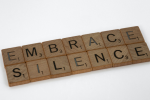June 29, 2011
America!?
 How many of you will sing Hymn 719 this coming weekend? Or something else from the back of Hymnal 1982? Will anyone be doing a number from the final pages of Lift Every Voice and Sing II?
How many of you will sing Hymn 719 this coming weekend? Or something else from the back of Hymnal 1982? Will anyone be doing a number from the final pages of Lift Every Voice and Sing II?
Yesterday as I finalized my plans for the 4th of July holiday weekend, I remembered, with a bit of trepidation, that I might get stuck in church on Sunday singing patriot anthems. I’ll be traveling out of town, so will likely stop into whatever local Episcopal Church I can find. Usually I enjoy visiting churches, counting on the familiar order of our Anglican liturgy to anchor me in an unfamiliar community. Every congregation has its unique culture, context, and theological bent, and I appreciate our diversity. I also understand that patriotic hymns have a long tradition in American church history (of many denominations). But I have to admit: I don’t like mixing patriotic song with God talk.
I also don’t envy the clergy, choir directors, or worship team leaders who wrestle with the question of how to appropriately acknowledge and celebrate national holidays within our Christian calendar and worship. What do you think is the right mix? How is your congregation approaching worship this weekend? Does the fact of 4th of July even matter in your planning (except, maybe, that attendance will be down)? I want to know, and wonder what creative ideas others have to share.
My most common experience on 4th of July church is singing Hymn 719: America the Beautiful. This one doesn’t ruffle my feathers too much, particularly if I can hear it as a celebration of beautiful land, an honoring of lives sacrificed, and a petition for grace. Plus, I like the music. It’s hard to get away from familiar hymns or songs when the tunes have become part of one’s cultural upbringing. But comfort and familiarity alone should not be the criteria for hymn selection.
The best place I’ve seen the dilemma confronted was at St. Bartholomew’s Church in New York City. It was a few years ago, but if memory serves, here’s what happened.
The rector issued the customary welcome greeting at the beginning of Sunday worship. He acknowledged that it was a national holiday, said parish leaders had discussed how to approach it, and then announced the way things would proceed. Worship would be based, as usual, on the liturgical season and lectionary for the day. Upon conclusion of the final hymn, people could feel free to leave. For those who wanted to stay, the music director and choir would lead a hymn sing to mark the holiday.
In between, as a postlude to worship, the musicians did a stunning performance of Fanfare for the Common Man, by the 20th century American composer Aaron Copland. I know not every church has the capacity to pull off a dynamic musical fanfare involving timpani, French horns, trumpets, trombones, and a gong, but I have to say, I was riveted to my seat. Not only was the music fantastic, but that pause between worship of God and honoring of country gave people like me just enough space to try to separate and reconcile conflicting claims. Ultimately the thoughtfulness of the whole approach compelled me to stay until the very end, even standing up to sing the National Anthem in church.





